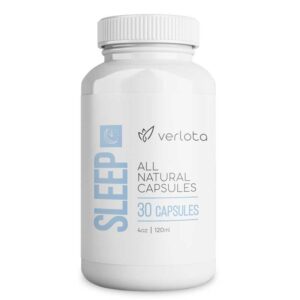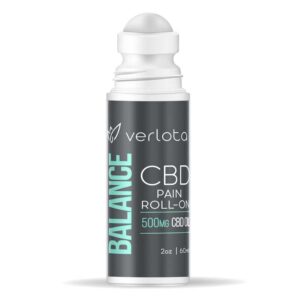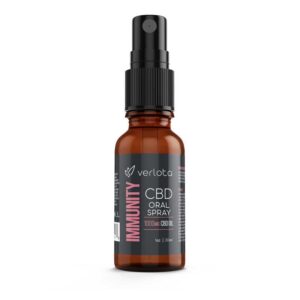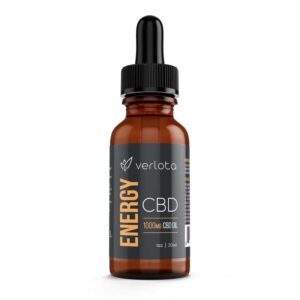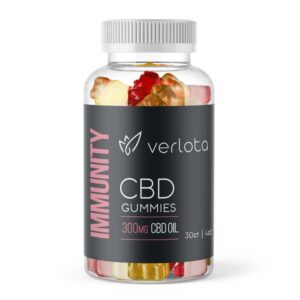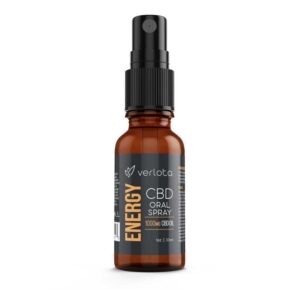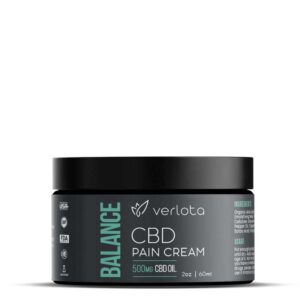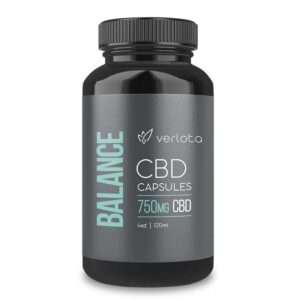It’s cold & flu season again… or, if you’re reading this in 2020, it’s been cold & flu season all year-round. Keeping your immune system healthy and running optimally is essential to fighting off the endless cacophony of viruses that seem to be all around us these days. For most people who have the blessing of a strong immune system, this is no problem – stay fit, well-rested and keep eating healthy and you’ll be fine.
For the vast majority, however, the subject of their immunity can be variable and tough to place on a spectrum. Are you one of those people who seems to catch every darn cold every year, one after the other?

Or maybe you’re the type that has your immunity boosting routine dialed in, and once you feel the onset of a cold or flu you rely on halting any sickness in its tracks with a flood of vitamin C?!
No matter how you configure your immune system, we could all certainly benefit from a boost now and then. Nobody is in perfect health and immune to all the bugs of the world, so why limit yourself to just the obvious immunity boosting tools? Why not improve your arsenal to coordinate a multi-pronged attack against these insidious, microscopic nemeses we call colds & flus?!
Vitamin C, vitamin D and B vitamins are very well-known components of maintaining a healthy immune system – among many other important bodily functions. However, what many of you might not know is that there are so many natural remedies, supplements and beneficial nutrients that can improve your immune system and so much more.
There’s virtually a natural remedy for every letter of the alphabet – Ashwagandha, Beta Carotene, Chaga, Durian, Elderberry… to Wormwood, Yucca and Zinc supplements. It’s this last trace mineral, Zinc, that we’d like to shed some light on today. Zinc’s benefits extend beyond maintaining a functional immune system, but it’s primary use has surrounded its positive effects on your body’s ability to overcome viruses, heal wounds faster and fight off bacteria.
IS ZINC GOOD FOR YOU?
What does zinc do for the body? This little-known micronutrient mineral is actually involved in a lot of facets of good health & wellness. Zinc is mostly involved in your immune system and healing capabilities, but a deficiency can also impact hair growth, sexual function and gastrointestinal issues.
Zinc is very important for your immune system and is often taken in the form of lozenges, tablets and powders to boost your immunity in times of need. Foods that are rich in zinc are also full of other beneficial vitamins and minerals, so they go hand-in-hand with a healthy diet. Some of the more prominent sources of zinc are:
- Legumes
- Nuts & Seeds
- Whole Grains
- Shellfish
- Animal Proteins (poultry, pork, beef)
How do zinc-rich foods and zinc supplements boost your immunity? Due to zinc’s ability to support the functionality & growth of immune cells, zinc vitamins help your body to produce antibodies to viruses and bacteria. Children & elderly are the most likely to suffer from zinc deficiencies – which we’ll talk about in more detail shortly – due to their under-developed or compromised immune systems.
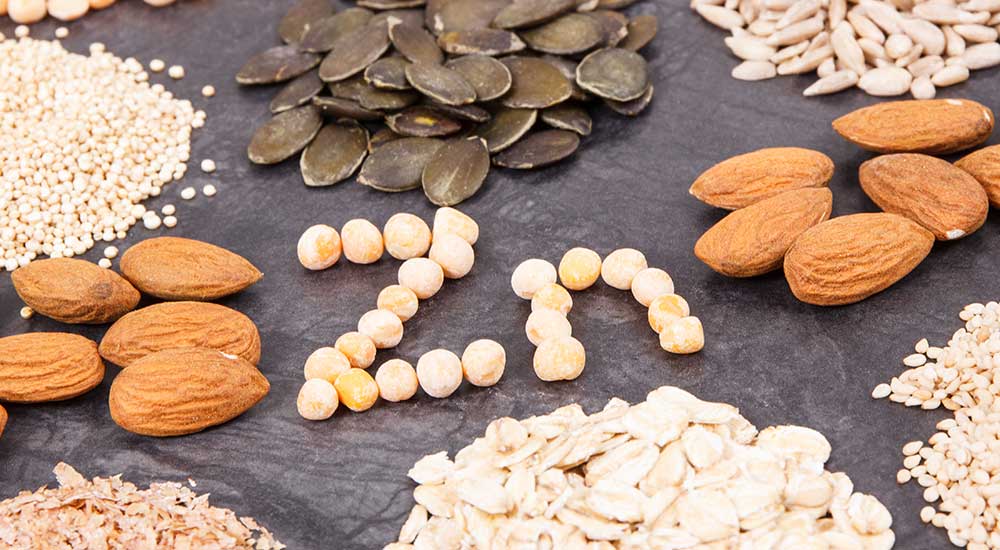
You certainly need to understand the symptoms of zinc deficiencies because some are quite severe: diarrhea, stunted growth, pneumonia-like symptoms, lack of appetite, infections, skin ulcers and more. These symptoms aren’t exclusive signs of just being deficient in zinc, so make sure you seek professional medical advice if you show any/all of these conditions.
Zinc is also important for sustaining your body’s healing factors. Zinc is involved in the production of new cells such as collagen, as well as being important in repairing damaged cells & tissues. Zinc acts as an anti-inflammatory, which is critical for both repairing damaged cells in addition to supporting good immune functions. Because of its dual proficiencies as an anti-inflammatory and cell-growth supporter, zinc is excellent for treating burns, ulcers and skin infections.
Whether you’re looking for immunity support or some relief from burns or itchy rashes, zinc vitamins and zinc-rich foods like legumes, nuts & seeds and shellfish might go a long way towards diminishing some of your discomforts.
Zinc is generally beneficial for hair growth, skin health and immunity functionality, but it can also help to reverse the effects of gastrointestinal discomfort and sexual dysfunction in men. If you think you might be suffering from some lower zinc levels, check with your health practitioner and see if a zinc supplement might suit your needs.
HELPFUL TIP: Try zinc lozenges during cold & flu season (which seems all year long in 2020!). Zinc is very effective at helping your body fight infections, protect itself from viruses and from colds, flus and bacterial exposure. Combining vitamin C & zinc is very common and very effective for sore throats, congestion, and a variety of other flu-like symptoms.
SYMPTOMS OF A ZINC DEFICIENCY
Sometimes it’s easier to comprehend the benefits of something by analyzing the negative effects of its absence.
What are the signs of a zinc deficiency you should be on the lookout for? The most obvious symptoms of a zinc deficiency are:
- Delayed development (i.e. late puberty, growth, shorter hair)
- Hair loss or discoloration/flaking of the nails
- Weakened immune system
- Erectile dysfunction
- Foul moods
- Swelling, nausea and discomfort (including diarrhea)
- Loss of taste/smell
Zinc toxicity can also cause stress on your health. Zinc levels in your body might become toxic if you ingest too much over both short- and long-periods of time. The culprit is almost always zinc supplements, as it is very difficult to get too much naturally derived zinc from foods or drinks.
Some of the signs that you’ve taken too much zinc are:
- Abdominal pain
- Nausea, vomiting
- Lack of appetite
- Headaches
- Diarrhea

Zinc deficiencies aren’t very common as this particular trace mineral can be completely derived from most normalized diets. On the other hand, plant-based diets are the most likely candidates for exhibiting zinc deficiencies, but this is not always the case simply more likely due to zinc-rich foods like poultry or red meats being left off their plates.
Zinc can be found in all your major organs, fluids, connective tissues, muscles and bones. The majority of zinc is harbored in your musculoskeletal system – around 83-85%. When your overall zinc levels drop below ideal ranges your body will draw zinc from other areas of the body (bones, reproductive organs, liver, blood plasma) in order to maintain the most critical zinc repositories: skin, muscles and heart.
This is why it is so important to get enough zinc from natural sources like food, and then supplement whenever necessary. You might not realize you’re deficient in zinc – it is a very commonly missed diagnosis because it mirrors symptoms of so many other deficiencies. As always, your diet will have the most direct influence on your zinc balance, but other factors like physical activity, sleep patterns and health supplements can contribute to how your body maintains healthy zinc levels.
HOW MUCH ZINC SHOULD I TAKE?
Determining how much zinc per day is not as easy as saying “X milligrams, X times per day” because everyone’s optimum levels will depend on a variety of factors.
How much zinc is too much? Well, according to this list of averages by age, the daily amount of zinc a person should take is as follows:
|
Age |
Zinc DV (Daily Value %) |
|
0-6 months |
2 mg |
|
7 months – 3 years |
3 mg |
|
4 – 8 years |
5 mg |
|
9 – 13 years |
8 mg |
|
14 – 18 years (male) |
11 mg |
|
14 – 18 years (female) |
9 mg |
|
18+ (male) |
11 mg |
|
18+ (female) |
8 mg |
| Pregnant Women |
11 mg |
| Breastfeeding Women |
12 mg |
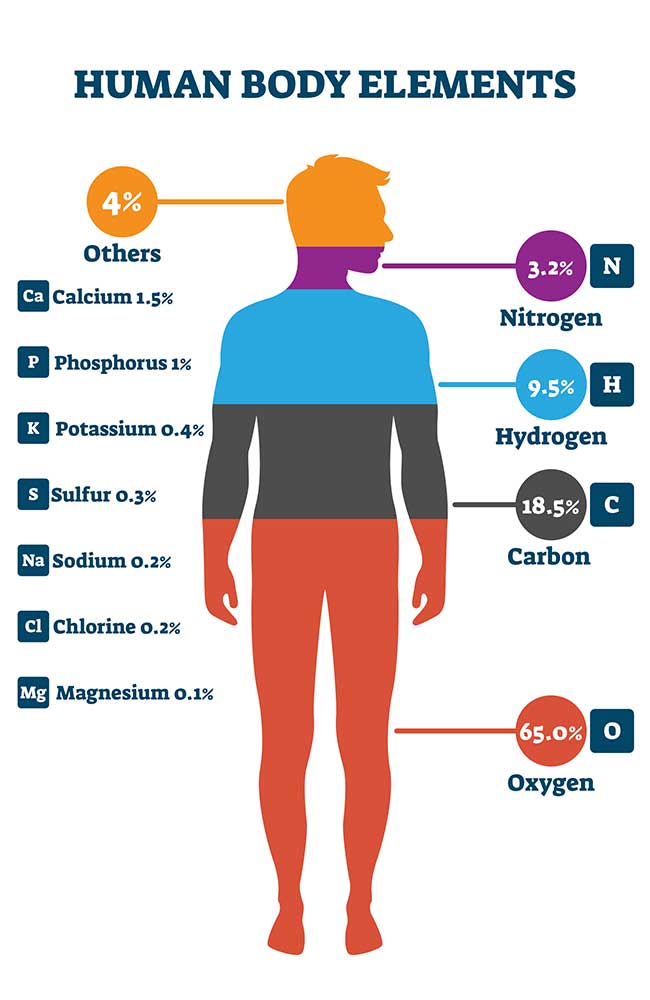
These figures are obviously not applicable to everyone as each person’s health circumstances are as unique as they are diverse. Similarly, not all pregnant or breastfeeding women will need to take zinc supplements because most prenatal vitamins and/or pregnancy-centric diets will include zinc in their profile of essential nutrients. Nevertheless, these stats illustrate the importance of zinc for infant development – both in-utero and early stages of life.
You should always start on the low-side when first trying zinc supplements, as is always best practice. Zinc can impede your body’s abilities to absorb other nutrients like iron and copper. Some people can experience severe nausea, diarrhea or vomiting if too much zinc is taken at once. This commonly occurs when someone perceives they are deficient in zinc but they are in fact not – the zinc they naturally ingest through their diet combined with zinc supplements can set your levels over the top. There are no serious health risks to consuming too much zinc, however it is best to avoid this scenario altogether by getting your zinc levels tested by a health practitioner if you believe they might be on the lower end.

We mentioned taking too much zinc can also cause some health problems, so you need to be sure that you’re maintaining a balance as much as possible. Taking high levels of zinc over long periods of time can lead to “chronic zinc toxicity”, which can bring about a host of nasty symptoms:
- Decreased immune function
- Iron or copper deficiencies
- Fevers, chills
- Profuse sweating
- Feelings of weakness
- Muscle pain
- Sharp chest pains
- Coughing and shortness of breath
To avoid these serious symptoms, in addition to the debilitations of zinc deficiencies, make sure you’re eating a healthy, balanced diet. Zinc supplement dosages will depend on your personal needs, so be careful to start at the lower end to avoid many of these zinc side effects. If you’re getting enough of this important mineral from the foods that you eat, you’ll never perceive that it’s a problem – only when you’re lacking do zinc side effects become noticeable.
Do your best to eat a balanced, nutritional diet and stay physically & mentally fit and zinc will be where it should be: at the bottom of your list of health problems, A – Z.
FAQ’s
What are the benefits of taking Zinc?
Zinc is a micronutrient used for numerous functions throughout the body, such as regulating your immune system, metabolism and healing of damaged tissues. Zinc can also impact the sensitivity/strength of your sense of smell & taste. Funny enough, some of the most popular protein sources on the planet are rich in zinc, such as poultry, red meats and many breakfast cereals.
What are the signs of a Zinc deficiency?
There are numerous symptoms of being deficient in zinc, but chief among them are: weakened immune system, weight loss, loss of appetite, nausea/diarrhea, slow or diminished healing factor, hair loss, skin irritability, reduced sensations (taste/smell).
When should I take Zinc?
Zinc supplements can sometimes cause slight nausea when taken on empty stomachs, so it is generally recommended to take zinc 1-2 hours before/after you eat. Zinc is generally safe to take throughout the day, as needed, but be sure to consult with your healthcare practitioner if you’re considering taking more than the average amount (40-50 mg per day).
What should you not take with Zinc?
Zinc has been known to cause certain reactions when combined with other supplements or medications. For instance, certain antibiotics can be rendered ineffective or inefficiently delivered to your system when the zinc levels in your blood are higher. Similarly, consuming zinc too close to copper, phosphorus or iron might reduce the benefits you’d receive of any one of these minerals on their own. In these cases and others, always be sure to consult with your doctor, and practice good health supplements dosing by spacing supplements out by 1-2 hours.
Can Zinc raise your blood pressure?
When your zinc levels are not in their optimal range, high blood pressure can occur. Lower than normal zinc levels can impact how your kidneys process sodium, leading to hypertension. Zinc can also influence your metabolism and immune system which are linked to cardiovascular health.
Can Zinc cause blood clots?
Zinc can not cause blood clots, however diminished levels of zinc in your blood can lead to increased risks of blood clotting if left unchecked. When zinc levels are lower than normal, your body produces less platelets – small, disk-shaped cells that are involved in clotting – thereby decreasing your body’s ability to form natural clots in your blood. Before taking zinc supplements to maintain optimal blood pressure or clotting functionality, consult with your healthcare provider to make sure zinc would be safe/effective for you.

